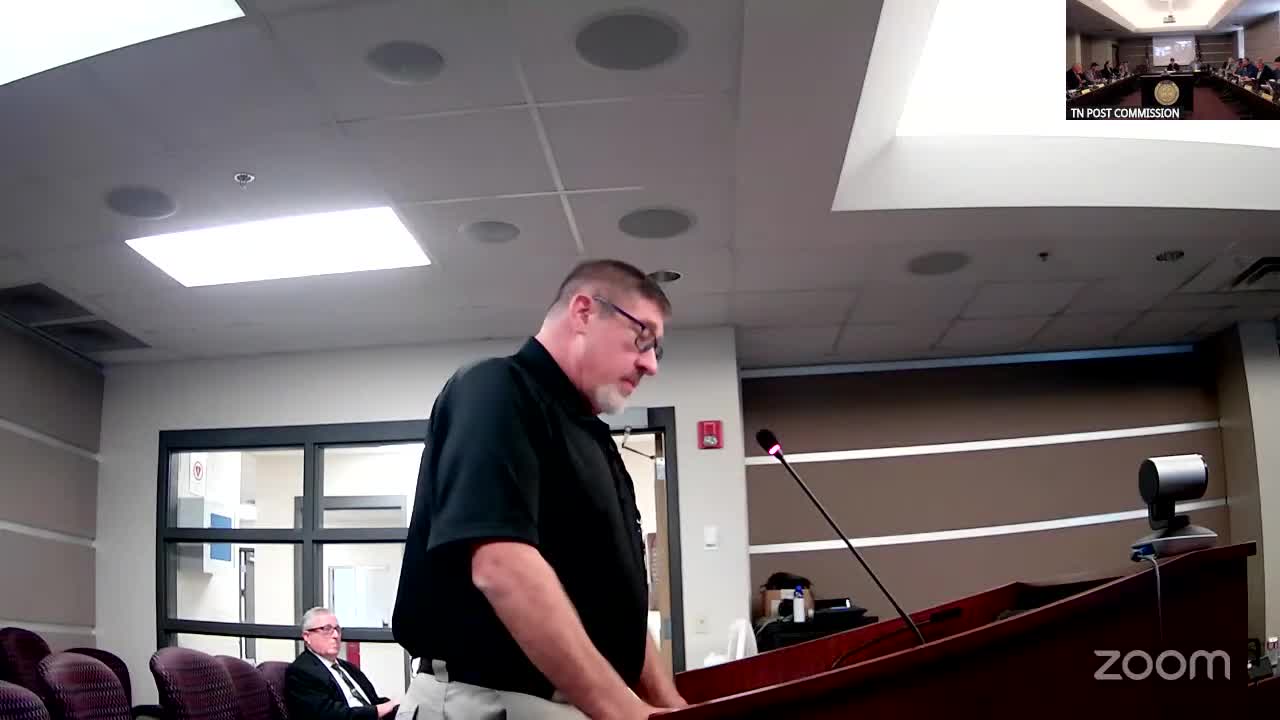Article not found
This article is no longer available. But don't worry—we've gathered other articles that discuss the same topic.
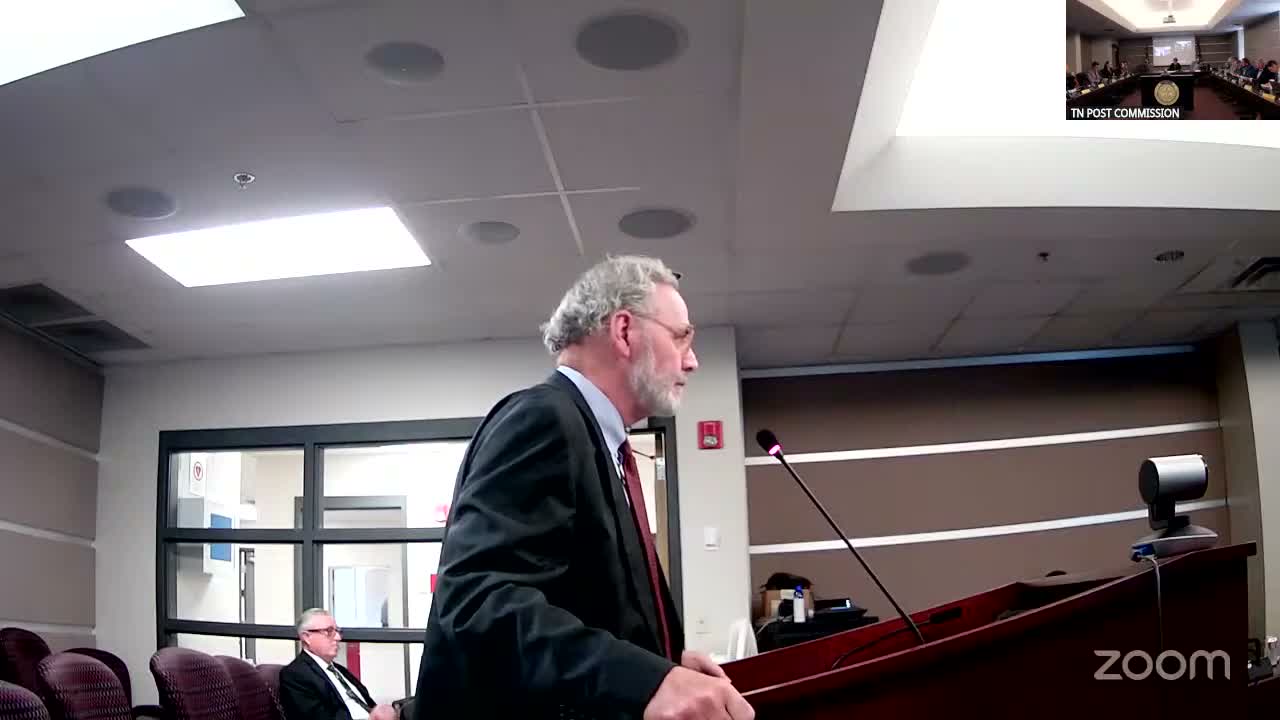
POST Commission accepts two-year suspension settlement for former trooper Albert Smith
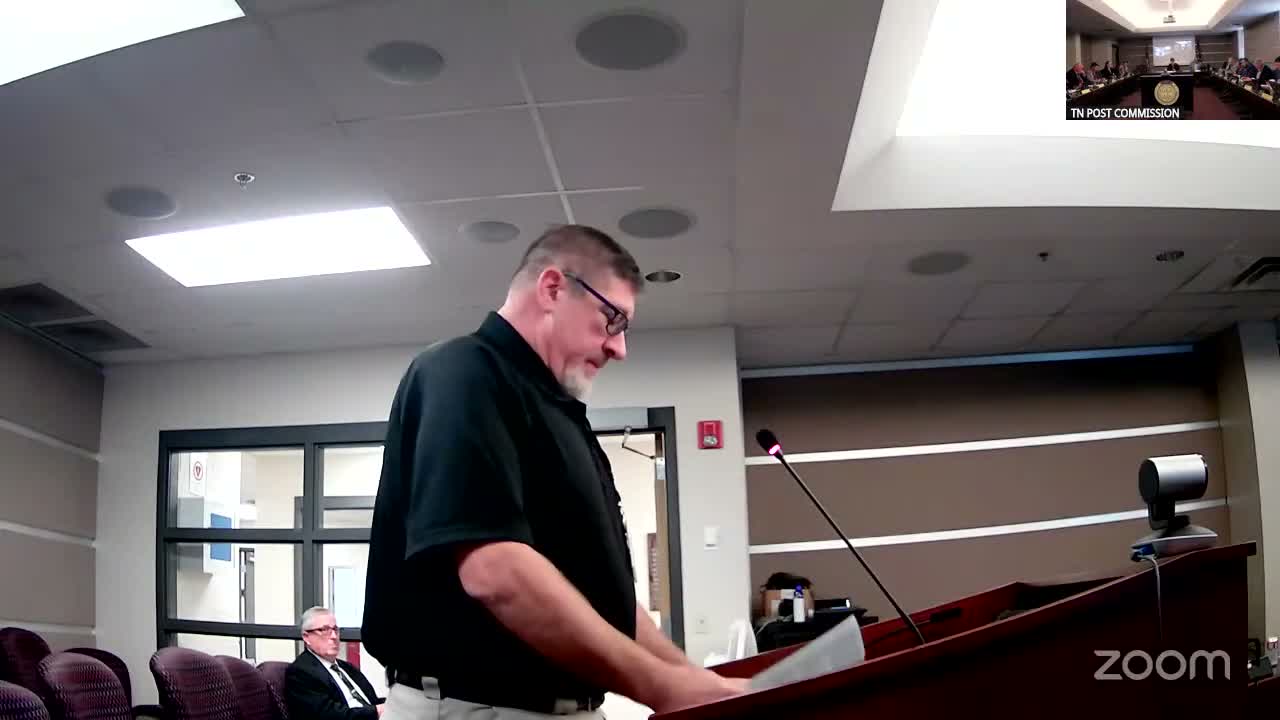
POST investigators find uncertified and undertrained officers at several small agencies; commission orders unannounced spot checks
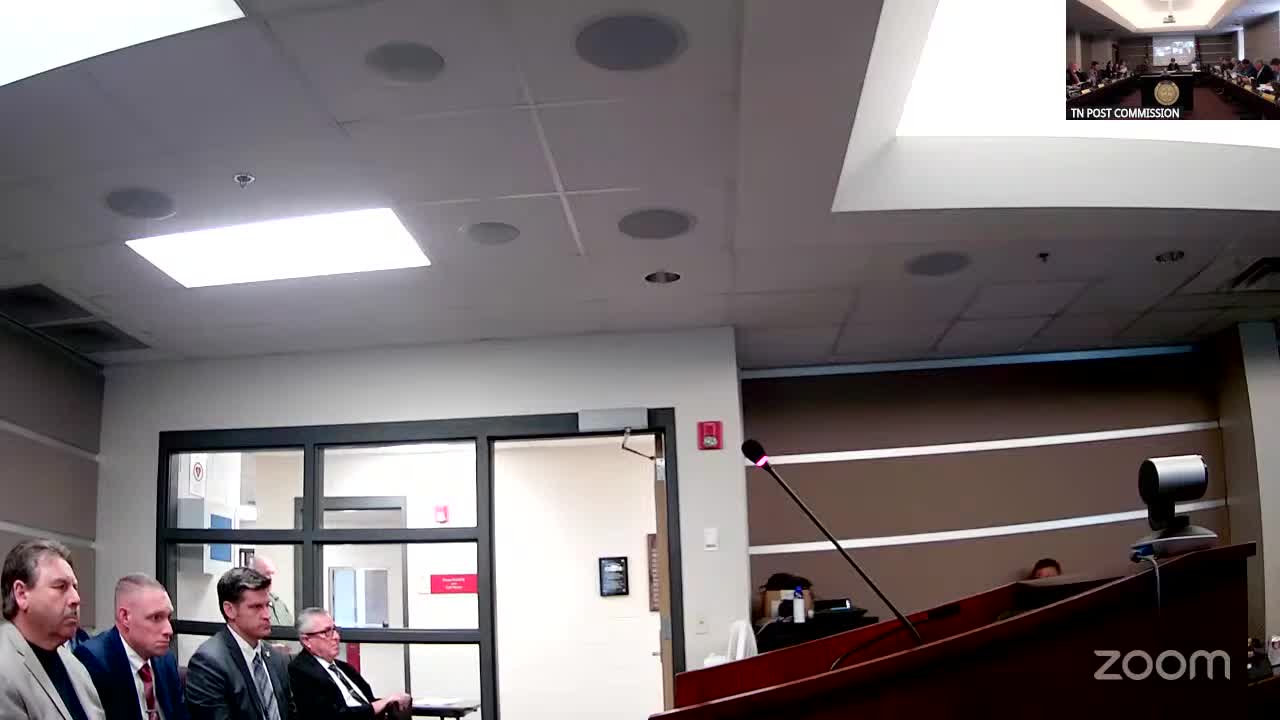
POST Commission approves multiple waivers, agreed orders and academy transfers
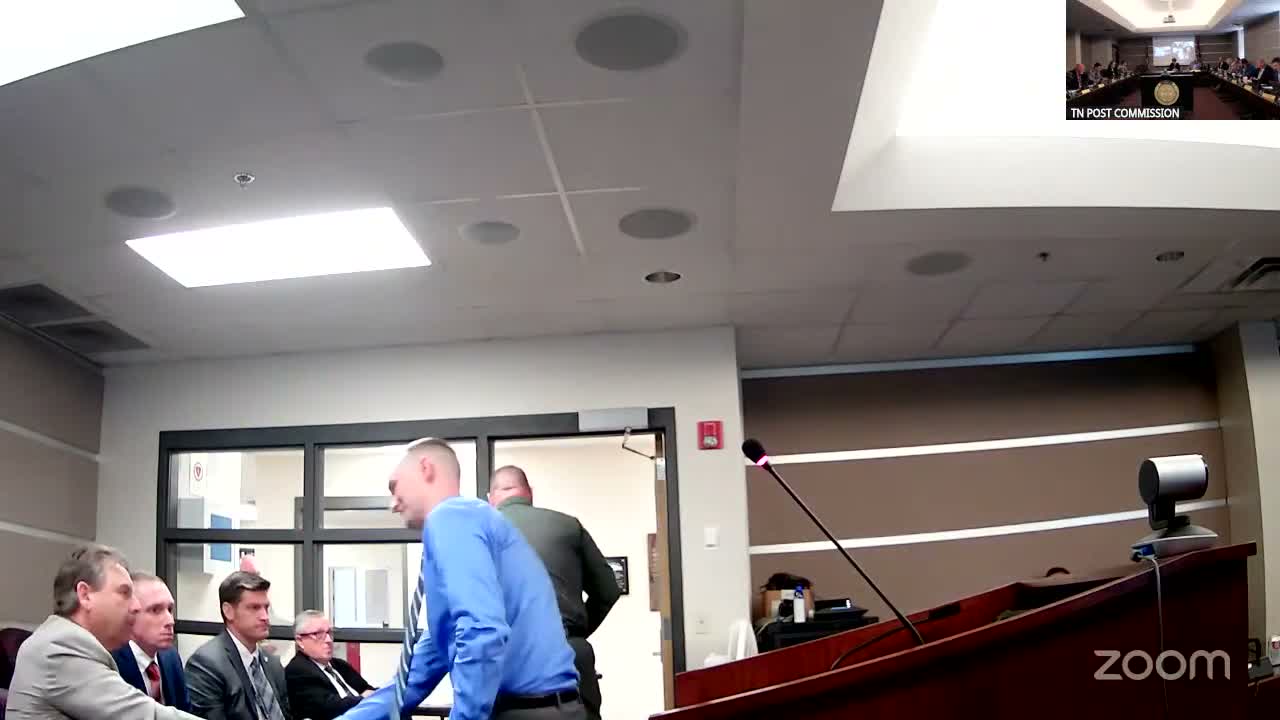
POST Commission denies reconsideration request for former recruit with 2010–13 offenses
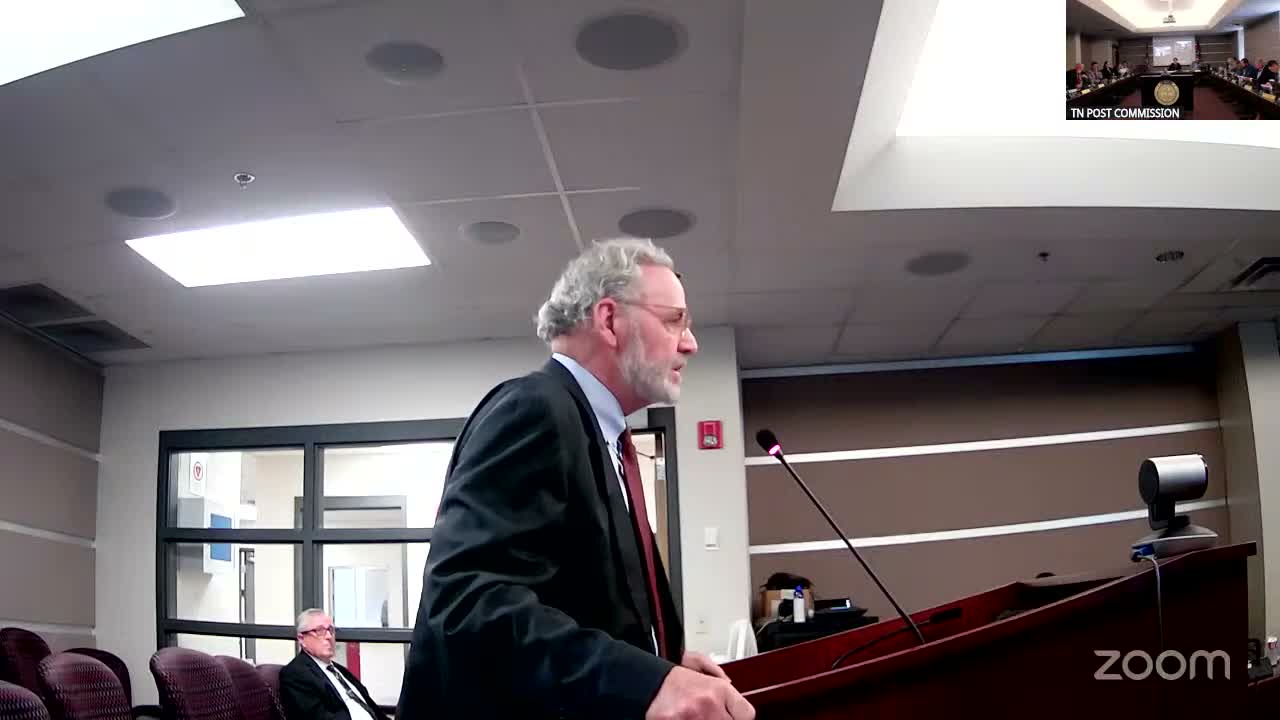
POST Commission accepts two‑year suspension settlement in case of former Tennessee Highway Patrol trooper
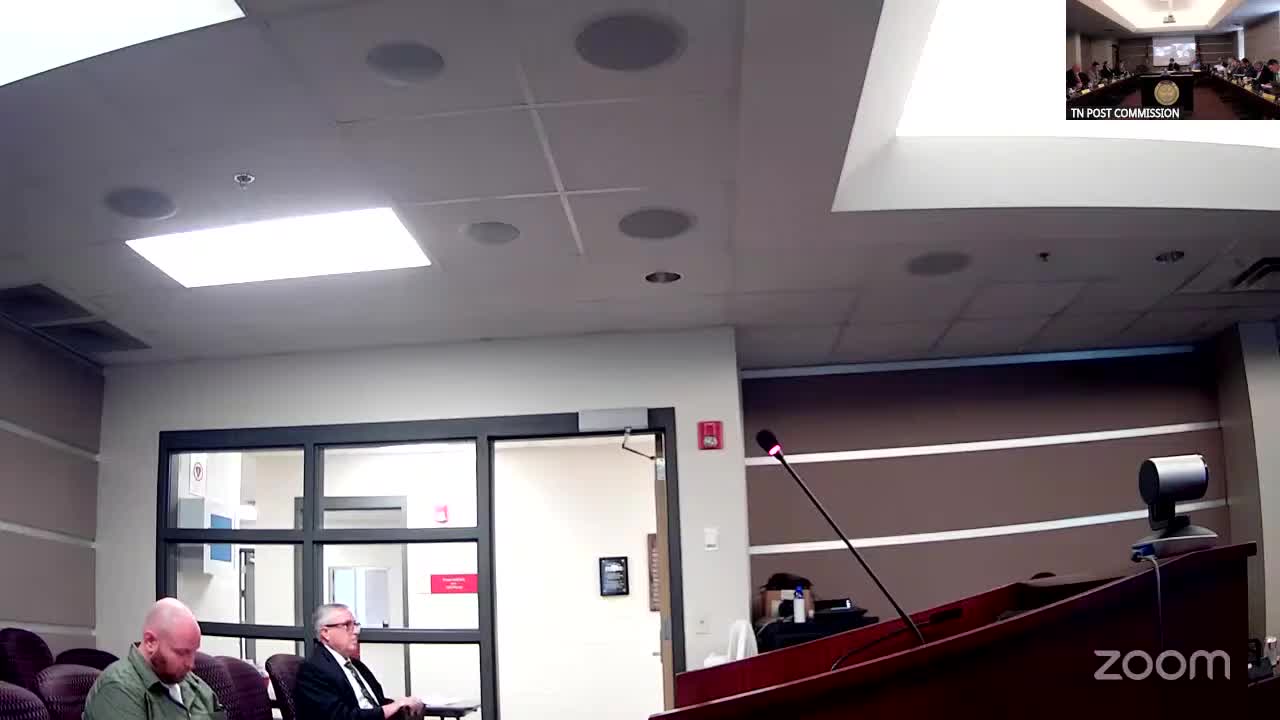
POST Commission approves multiple waivers, agreed surrenders and suspensions
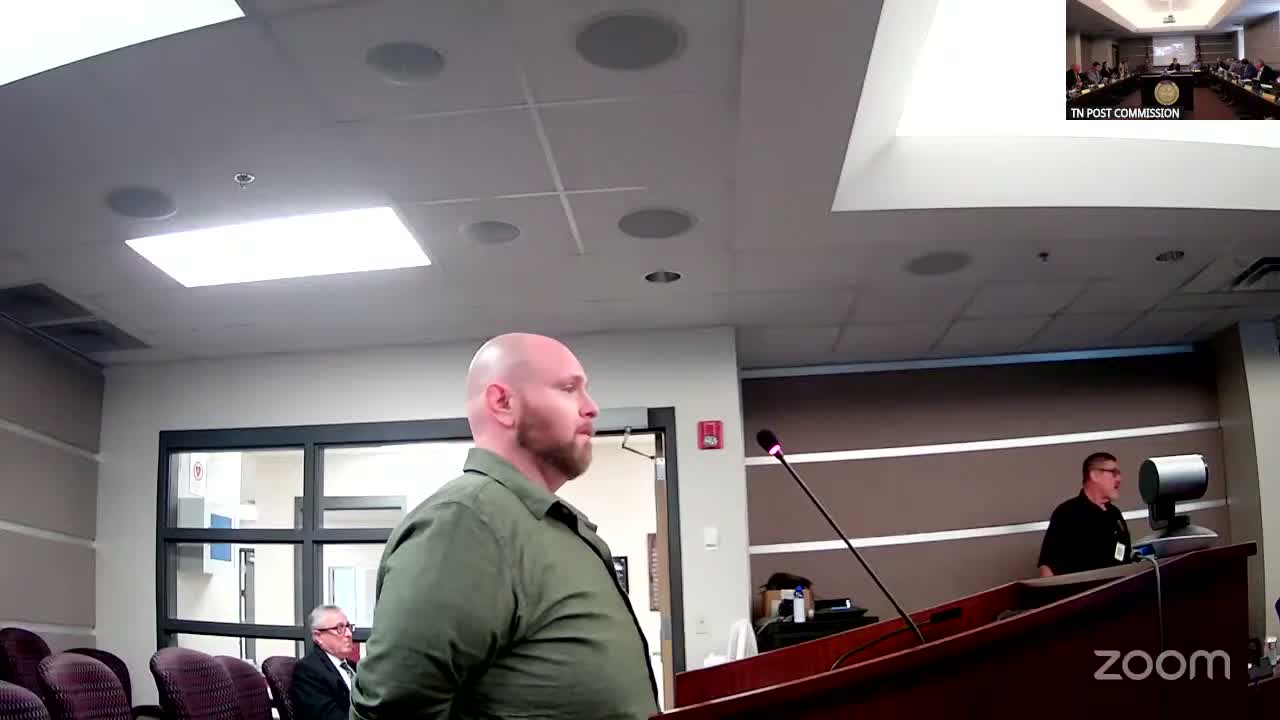
POST investigators report compliance issues at small departments; commission orders spot checks
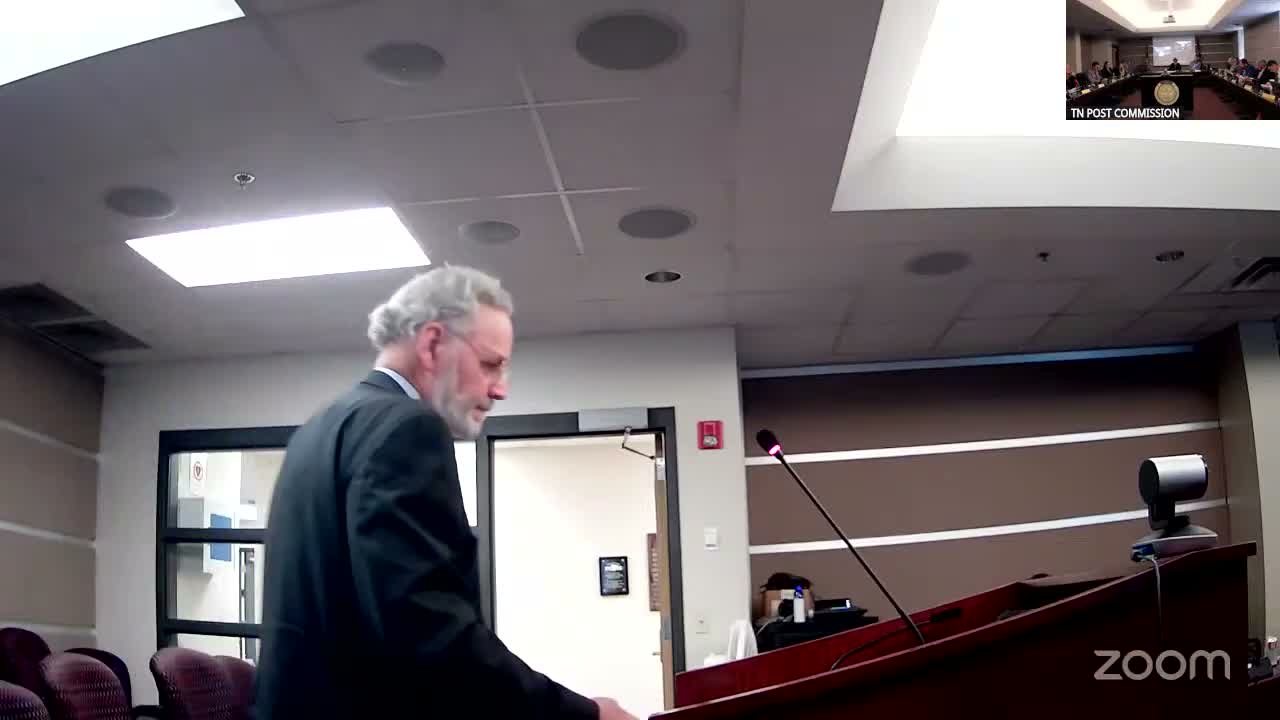
POST Commission accepts two-year suspension settlement in Albert Smith case, with training conditions
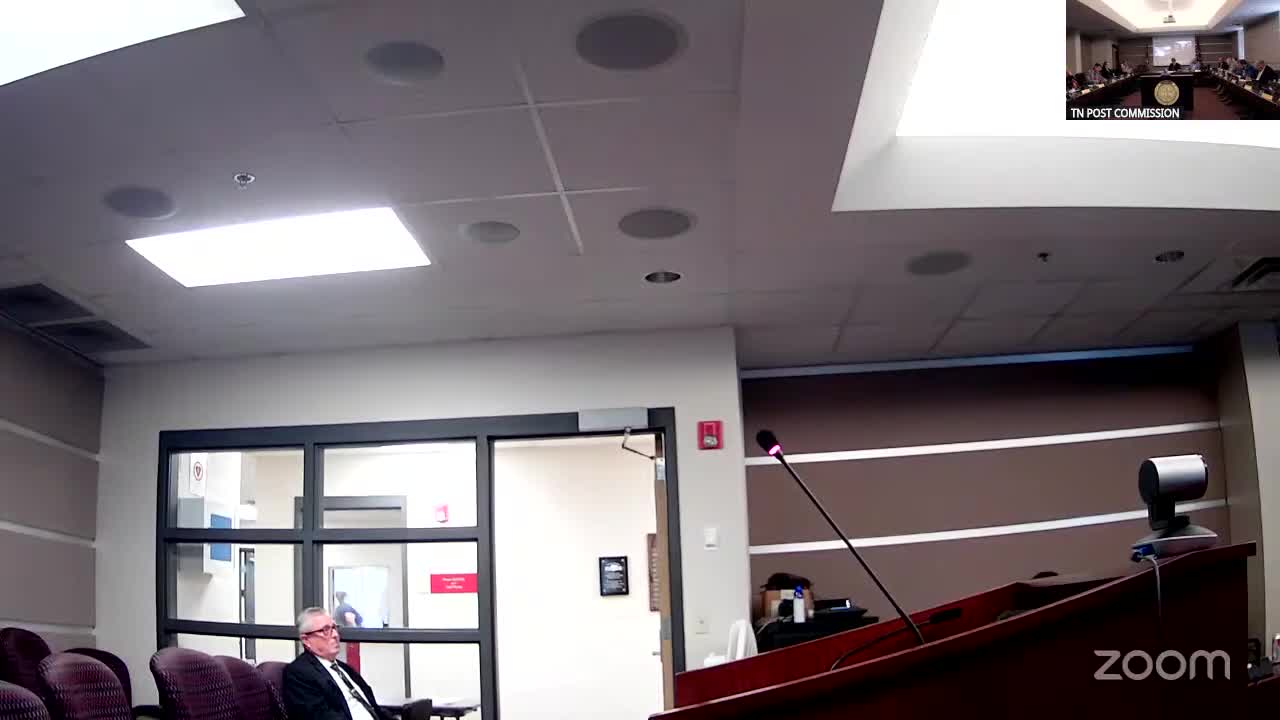
Commission takes no action on LEOSA retired-officer permit request tied to employment status

Post Commission approves slate of personnel waivers and academy transfers
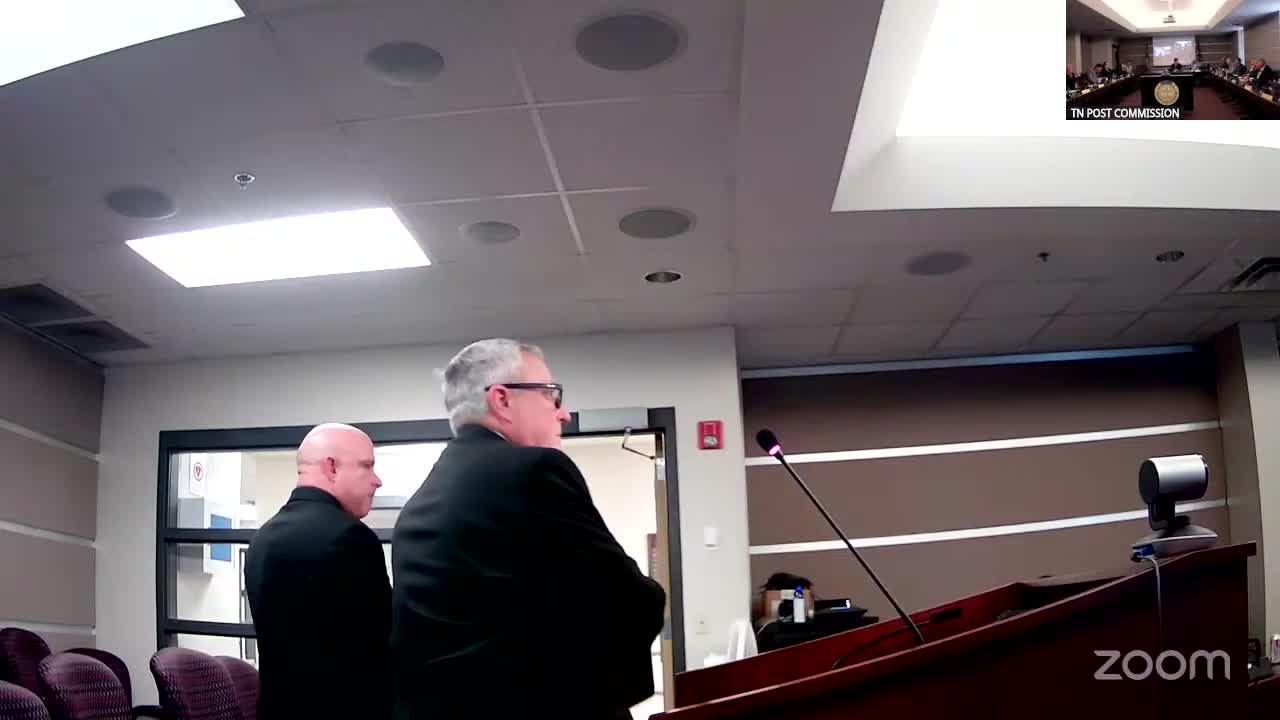
POST to require annual conflict-of-interest disclosure; commission previews new form

Commission takes no action on LEOSA retired-officer permit pending documentation of good‑standing

Commission accepts several agreed orders, suspensions and surrenders; schedules hearings on selected matters
